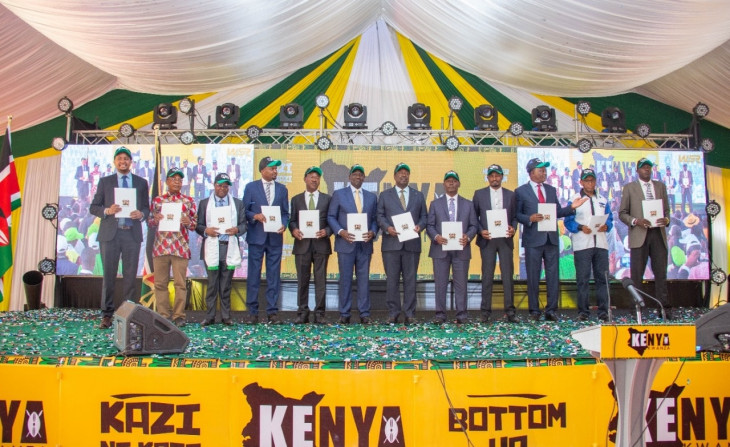Parties must open doors to women leadership
By Mukalo.Kwayera, March 27, 2024Barring a miracle, Namibia will have a woman president later this year.
In less than a month, the stars seem to have perfectly aligned in favour of Dr. Netumbo Nandi-Ndaitwah, the vice-president.
She sprung to that position on February 5 this year to replace Dr Nangolo Mbumba who on the same day was sworn in as the President of the Republic to take the place of Dr. Hage Geingob who had died a day earlier.
Now last week, President Mbumba announced during an interview with the South African Broadcasting Corporation that he would not run for the position of President in an election scheduled before the end of the year and that he would instead throw his weight behind Dr Nandi-Ndaitwah who is also the vice-president of the ruling South West African People’s Organisation party.
Should that come to pass, Nandi-Ndaitwah will be somewhat following in the footsteps of Tanzanian President Samia Suluhu Hassan who rode to power in the same fashion after the demise of former President John Magufuli.
If she achieves the feat, Nandi-Ndaitwah will become only the sixth woman president in Africa after Suluhu, Dr Ellen Johnson-Sirleaf of Liberia, Dr Joyce Banda of Malawi, Dr Sahle-Work Zewde of Ethiopia and Dr Catherine Samba-Panza of Central African Republic. All are PhD holders. Out of them, only Zewde and Suluhu are still serving and therefore Nandi-Ndaitwah would make the number rise to three.
That is a very positive development. However, not so for Kenya. The East African nation, heralded as a bastion of democracy in the region, has fared poorly on matters relating gender equity. Male chauvinism still rules in all the three arms of government in spite of there being in existence very clearly defined constitutional provisions for gender balance.
Namibia attained independence in 1990, three decades after Kenya. However, Namibia has democratically moved on steadily in all spheres of development while Kenya remains stuck in ruts of electoral fraud, corruption, patriarchy, ethnic bigotry, skewed allocation of resources, subservience to Western capitals, politically-driven marginalisation and archaic cultural practices such as female genital mutilation and livestock theft.
Since the advent of plural politics in Kenya in 1991, political parties have been pivotal to the growth of democracy, including the campaign for, and enactment of, the current Constitution which was promulgated in 2010.
However, these same political parties have been responsible for the dearth and lack of progress in gender equity.
Political parties such as the Forum for the Restoration of Democracy (FORD), Ford-Asili, Kenya National Congress (KNC), Democratic Party and later ODM, Narc and Narc-Kenya have over the years played a commendable role in the development of democracy.
However, apart from the Martha Karua-led Narc Kenya and the Charity Ngilu-fronted Narc, most of the existing political parties have closed doors to women leadership.
Lately, the ruling United Democratic Alliance (UDA) appointed Embu Governor as its chairperson. Ahead of the 2022 General Election which brought it to power, UDA also had Nominated Senator Veronica Maina as its Secretary-General, a position now occupied by former Kakamega Senator Cleophas Malala.
That is a positive stride for UDA. The same cannot be said of the Orange Democratic Movement (ODM), undoubtedly the party with the strongest democratic credentials in Kenya today. The top ODM leadership is male-dominated. The party has only one woman governor out of the 47.
The idea of Kenya having a woman president in the near future will remain a pipe dream so long as political parties shut doors for women angling for national leadership.
On March 8 during the International Women’s Day celebrations, President William Ruto inferred that he would sit down with his deputy Rigathi Gachagua to explore ways of gender-balancing the party’s presidential ticket in future, possibly starting with Gachagua’s running-mate in 2032 (I didn’t hear Ruto say he would pick a woman deputy in 2027 to replace Gachagua as has been widely reported).
Political parties must come of age to champion, defend and promote gender equity.
Only then shall we start talking about the possibility of having a woman president in the not-so-distant future.
— The writer is the Revise Editor, People Daily. Email: kwayeram@yahoo.co.uk
